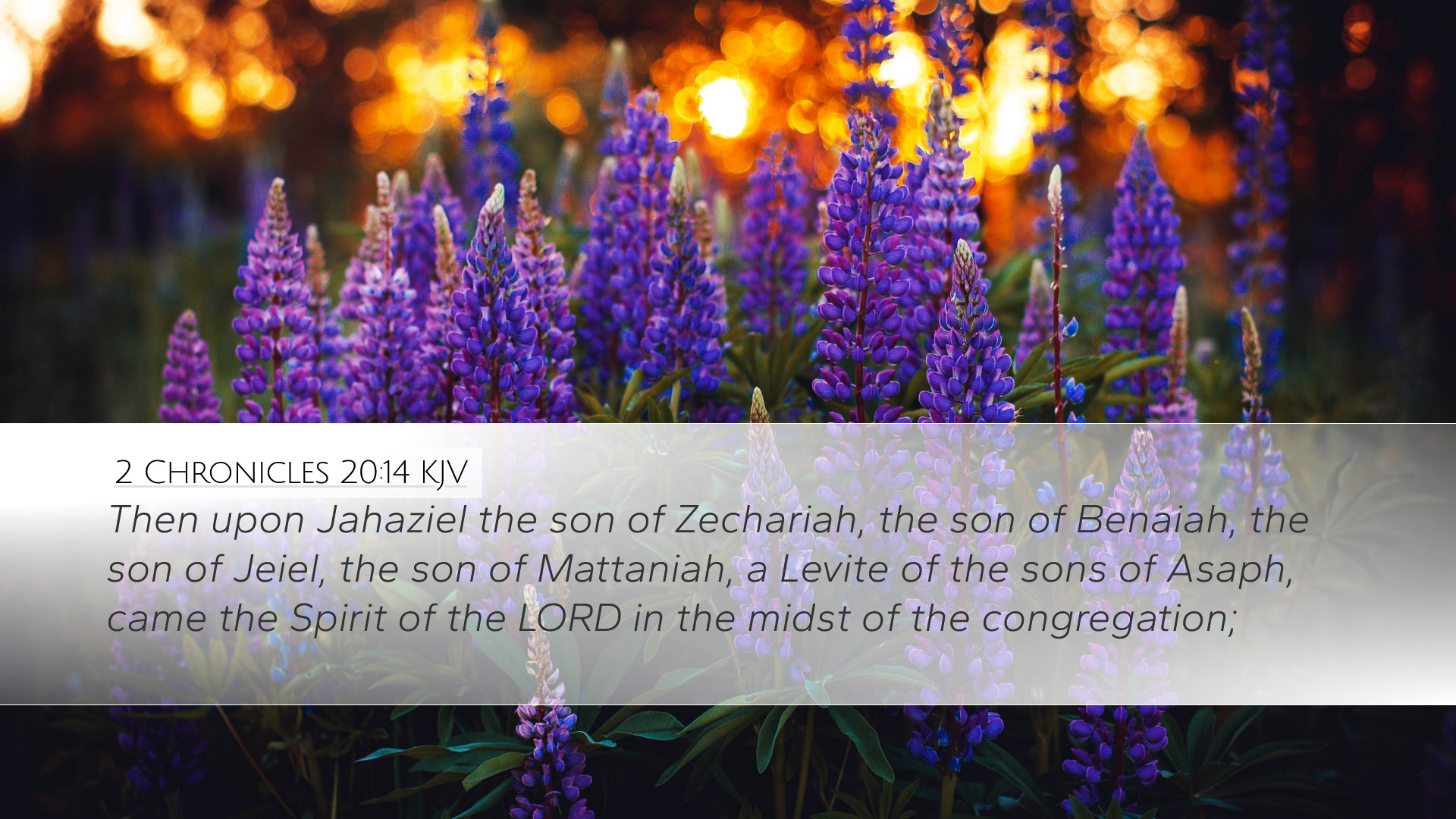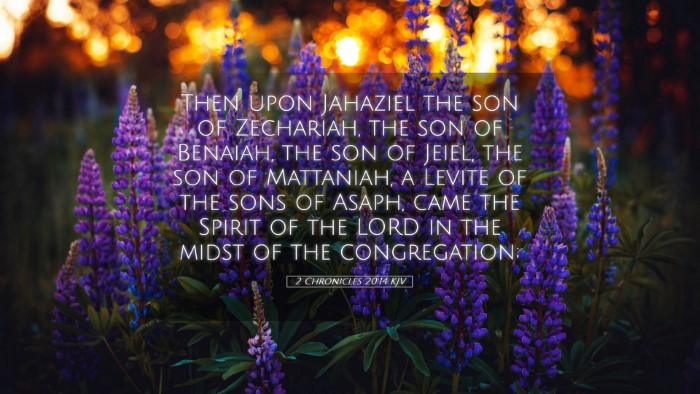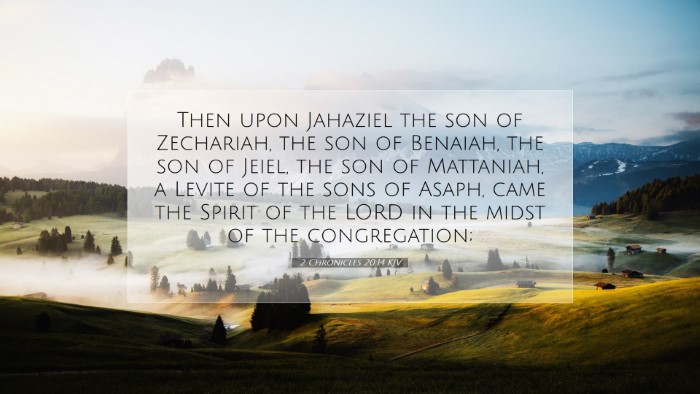Commentary on 2 Chronicles 20:14
Verse: "Then upon Jahaziel the son of Zechariah, the son of Benaiah, the son of Jeiel, the son of Mattaniah, a Levite of the sons of Asaph, came the Spirit of the Lord in the midst of the congregation."
Introduction
This verse is part of a significant moment in the history of Judah, where King Jehoshaphat seeks the Lord amid a dire threat from invading armies. The passage underscores the importance of divine inspiration through the Holy Spirit and provides insights into how God communicates with His people in times of crisis. The commentators expand on the context surrounding this event, emphasizing the profound reliance on God's guidance as a spiritual principle.
Contextual Analysis
As we delve into this moment, it's essential to consider the historical context:
- Threat of Invasion: Judah faced a coalition of enemies, illustrating the ever-present danger faced by the people of God.
- King Jehoshaphat's Prayer: Prior to this verse, Jehoshaphat called upon the name of the Lord, demonstrating humility and dependance on prayer—a central theme in this narrative.
Insights from Commentators
Matthew Henry
Henry emphasizes how Jahaziel, a Levite, was chosen by God to deliver a message of hope and reassurance. His lineage is significant as it connects him to the heritage of worship and prophetic ministry within the nation. Henry points out the essential role of the Holy Spirit in guiding believers, especially in communal settings, and how God raises voices in moments of collective need.
Albert Barnes
Barnes elaborates on the significance of Jahaziel's prophetic word as not just a mere revelation but a direct intervention by the Spirit of the Lord. He notes that the congregation was activated by this inspired message, which provided them with both direction and encouragement. The idea that God speaks through individuals within the community reflects the dynamics of Old Testament worship and the ongoing relationship between God and His people.
Adam Clarke
Clarke draws attention to the characteristics of genuine prophetic utterance. He outlines how Jahaziel's message served a dual purpose: addressing fear and affirming faith. Clarke's analysis includes a reflection on the importance of attentive listening within worship communities, noting that spiritual discernment is critical in recognizing God's voice amid turmoil. The involvement of a Levite emphasizes the sacred nature of the message and the institutional role of worship leaders.
Theological Reflections
This passage provides rich soil for theological reflection, particularly concerning:
- The Role of the Holy Spirit: The Spirit actively participates in guiding God's people. This interaction highlights the ongoing presence of God among His followers, especially in communal gatherings.
- Divine Communication: The method by which God delivers His messages—through chosen individuals—demonstrates His sovereignty and personalized approach to relationship with humanity.
- Community and Worship: The context of this prophetic ministry underscores the collective nature of worship and the importance of corporate intercession for deliverance and guidance.
Practical Applications
For contemporary pastors, theologians, and students of the Scripture, several key applications arise from this verse:
- Encouragement in Leadership: Like Jehoshaphat, leaders today must seek divine guidance, especially when faced with challenges. Prayer and reliance on the Holy Spirit are vital for discernment.
- Listening to Prophetic Voices: The church must cultivate an environment of openness to the prophetic, recognizing the value of individuals who are moved by the Spirit to speak truth and encouragement.
- Collective Prayer and Worship: Emphasizing corporate prayer and the gathering of believers can lead to powerful experiences of God's presence and direction as seen in this instance.
Conclusion
The declaration made by Jahaziel, as prompted by the Holy Spirit, is a profound reminder of God's faithfulness and intervention in our lives. It illustrates God's ongoing narrative with His people—He listens to their cries and responds with promises of protection. As we reflect on 2 Chronicles 20:14, we are encouraged to recognize the avenues through which God communicates and leads us in faith, reminding us that even in moments of crisis, we are not alone.


